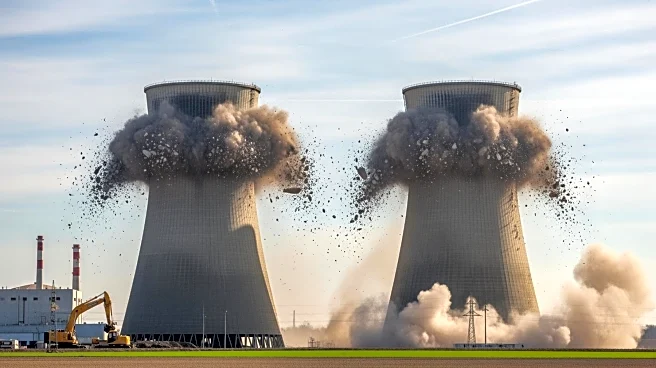What's Happening?
In the German town of Gundremmingen, two cooling towers of a nuclear plant were demolished in a controlled explosion. These towers had been a prominent feature of the landscape since 1980. The demolition is part of Germany's broader strategy to phase
out nuclear energy, a process that has been ongoing for several years. The plant itself has been offline for four years prior to this demolition. The event was marked by thick clouds of white smoke and dust as the towers collapsed.
Why It's Important?
The demolition of the Gundremmingen nuclear plant towers is a significant step in Germany's transition away from nuclear energy, reflecting the country's commitment to shifting towards more sustainable energy sources. This move is part of a larger European trend of reducing reliance on nuclear power due to safety concerns and the desire to invest in renewable energy. The transition impacts energy policy and economic strategies, influencing energy markets and potentially affecting energy prices and supply stability in the region.
What's Next?
Germany will continue its efforts to decommission other nuclear facilities as part of its energy transition plan. This will involve further demolitions and the development of alternative energy infrastructure. The country is likely to increase investments in renewable energy technologies and infrastructure to compensate for the loss of nuclear power. Stakeholders, including government agencies, energy companies, and environmental groups, will play crucial roles in shaping the future energy landscape.
Beyond the Headlines
The shift away from nuclear energy in Germany raises questions about energy security and the balance between environmental goals and economic realities. The transition may lead to increased reliance on other energy sources, such as natural gas, in the short term. Additionally, the dismantling of nuclear facilities involves complex logistical and environmental challenges, including the safe disposal of nuclear waste.


















